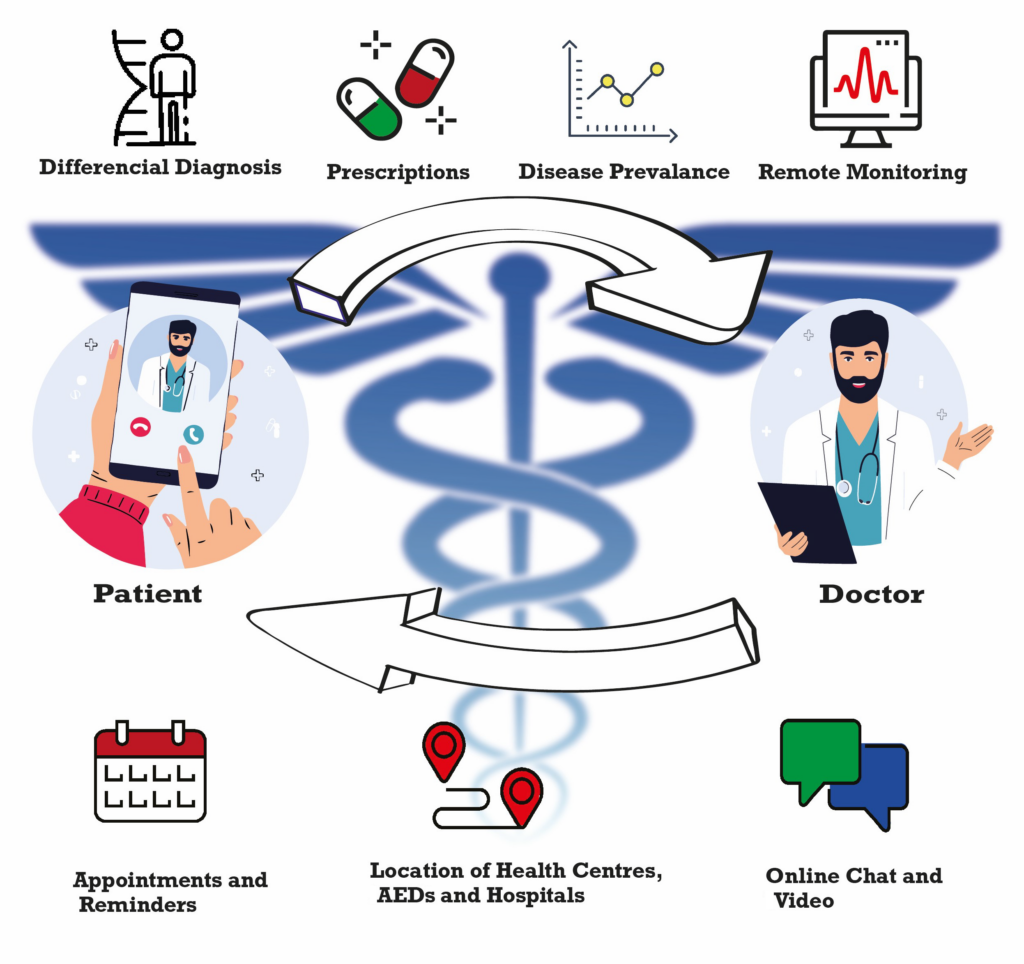The main aims of this project were to contribute towards: reducing the strain on hospital resources, improving the accessibility to healthcare services and empowering patients to manage their health better.
The above was achieved by developing a mobile application for both patients and doctors. The main features chosen were based on the online services currently offered by the Ministry of Health, such as myHealth, Pharmacy of Your Choice (POYC) and Telemedicine ‒ and bringing them together in a single app. This was done to make these features available to patients at any time through their smartphones or tablets, while ensuring a better user experience.
The proposed app also offers novel features, including patient education, differential diagnosis, and disease prevalence. Patient education seeks to provide users with knowledge on various medical topics such as nutrition, first aid and holistic medicine. The differential diagnosis would allow users to select several symptoms and send them to a GP, who could best determine the best course of treatment for them. Upon receiving the symptoms and the patient’s medical history, the GP could assess a patient’s status. With this information in hand, the GP would be able to determine whether the patient would need to seek immediate medical attention at Mater Dei Hospital (MDH). In the case that the patient would not require to be hospitalised, they could merely visit a healthcare centre or book an online appointment with the relevant outpatients clinic. This feature was aimed at reducing the strain on the emergency department at MDH, and to improve triage assessment.
Lastly, the ‘disease prevalence’ feature is included to offer patients insights into the most common diseases present in Malta, the probability of their developing that disease, and information on how to treat or control it. The generic probability would be based on publicly available datasets and calculated using machine learning. If the patient would allow access to their medical history, their data could be used as part of the processing for more accurate results. The app could also assist patients in finding the nearest pharmacies, clinics, health centres, emergency departments and hospitals.
The app would also aid doctors in efficiently managing their patients’ health through remote monitoring, access to their medical history, and critical information. It would also enable doctors to schedule appointments both physically and remotely, and manage patient medication.
All of the data handled by the app was stored in Firebase, which also hosted the database and was responsible for user authentication. This platform was chosen to ensure secure data storage, given its sensitivity. The database is GDPR-compliant and is hosted in the EU.

Course: B.Sc. IT (Hons.) Software Development
Supervisor: Dr Lalit Garg
